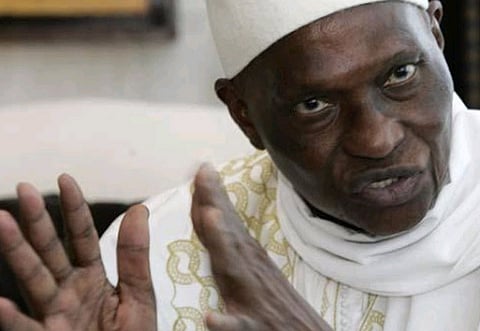Imperilled democracy
Senegal can be saved from incumbent president Wade's machinations if the opposition puts up a united front in the presidential election

The future of one of Africa's oldest democracies is at stake in Senegal's presidential election on February 26. The incumbent, Abdoulaye Wade, formerly a leading advocate for democracy, has, at almost 90 years old, become its gravedigger.
Wade has been tinkering with Senegal's constitution in dangerous ways ever since he was inaugurated in 2000. Of the 15 changes Wade made to the constitution, 10 weakened democracy; the others were erratic, if not bizarre.
For example, Wade at one point abolished Senegal's senate, only to reinstate it after realising that it could be put to use as a place to reward political allies. Likewise, he reduced the length of presidential terms from seven years to five, but later restored it to seven.
In February 2007, Wade was re-elected as Senegal's president amid opposition charges that the election had not been free and fair. As a result, the opposition boycotted the June 2007 parliamentary elections. That was a mistake, because the boycott gave Wade absolute control over the legislature, as well as the ability to appoint Constitutional Court judges unimpeded.
Last June, Wade attempted what would have amounted to a constitutional coup. The most recent credible opinion poll in Senegal, conducted the previous year, had indicated that Wade would receive only 27 per cent of the vote in the next presidential election. Given the existing constitution's provision for a mandatory run-off if no candidate wins 50 per cent, Wade would almost certainly lose if the opposition parties united behind a single candidate.
Wade, recognising this, tried to have the National Assembly amend the Constitution in his favour once again. Any candidate who won a plurality and at least 25 per cent of the popular vote in the first round would win the presidency. No run-off would be necessary.
Military takeover
Thanks to massive demonstrations, in which many popular artists played a role, Wade backed off. It is now impossible for him to abolish a presidential runoff. But Wade is trying other tricks.
His followers have circulated fake polls suggesting that he would win in the first round with 53 per cent — clear evidence that Wade's clan does not seriously envisage any scenario other than a first-round victory.
Indeed, if Senegal were like Latin America in the 1960s and 1970s, the military probably would have taken over already in the guise of saviour of public order. Fortunately, Senegal, like India, is one of the few countries born after the Second World War never to have had a military takeover.
Senegalese democracy can still be saved. If the opposition parties keep their promise to unite behind whichever opposition candidate receives the most votes in the first round, Wade will most likely lose in the run-off.
Moreover, the opposition's chances of benefiting from a free and fair election will be enhanced, owing to greater external scrutiny of the election than there was in 2007, when no international electoral observers were present.
Indeed, a strong team of election monitors from the European Union is already on the ground. But massive international media attention, as well as Senegalese citizens' vigilance, will be necessary to avoid sophisticated vote-rigging and violence.
If the opposition defeats Wade, Senegal's most vital democratic institutions could be rapidly reinvigorated. The opposition would participate in, and almost certainly win, the June 2012 general election, and all of the opposition candidates have agreed that, whichever one of them wins the presidential election, the country's super-presidential constitution should be overhauled.
Eventually, with a strengthened legislature and a more constrained presidency, the Constitutional Court, too, would begin to change. In that case, Senegal's slide towards authoritarianism would be reversed, and its legacy of democracy redeemed.
— Project Syndicate, 2012
Alfred Stepan, a professor of political science at Columbia University, is a specialist on comparative democratisation. Etienne Smith, a fellow at Columbia University, has carried out nearly a decade of field research in Senegal.



